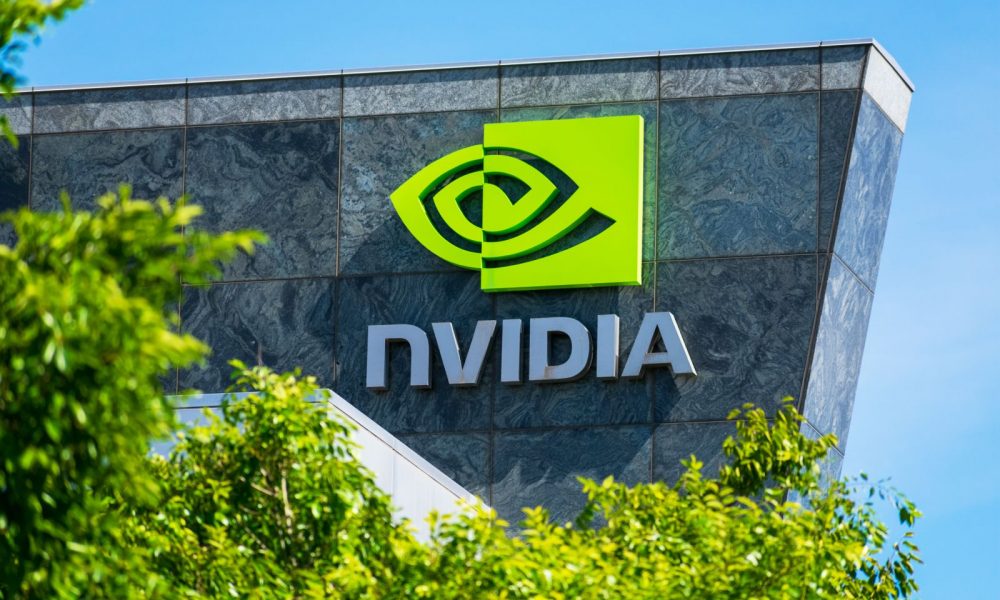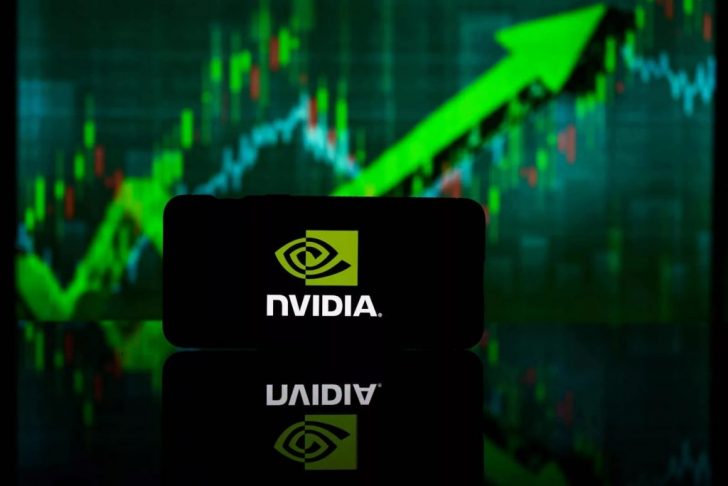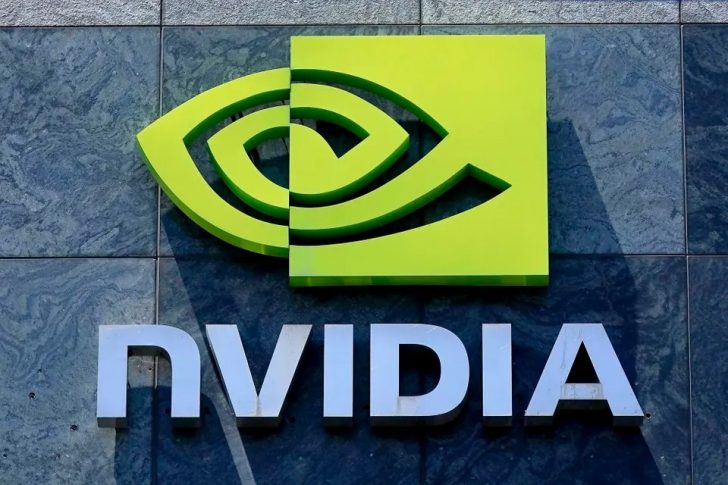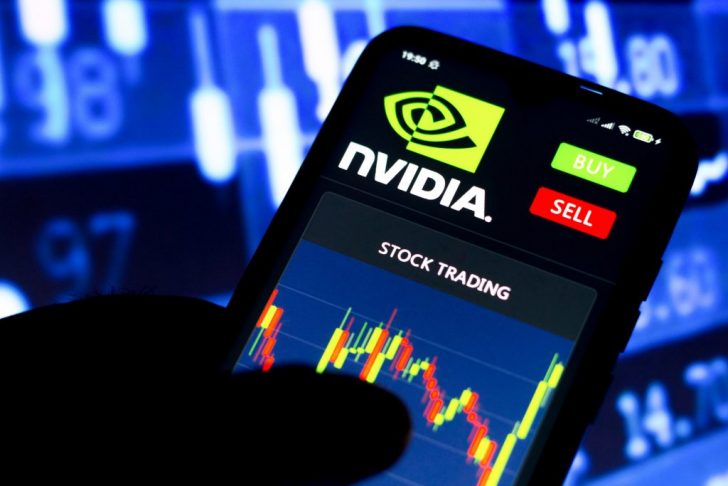
Nvidia Stock Now Continues to Drop After Bull Run: What Went Wrong?

After a period of massive growth, Nvidia’s stock is now experiencing a significant drop in value. This California-based software company, known for its advanced AI chips, has seen its market value plummet by over $500 billion, despite once surpassing giants like Apple and Microsoft. Why is Nvidia stock down, everyone asks?

Advisor / The California-based software company has lost more than $500 billion in value after becoming the largest AI chipmaker surpassing Apple and Microsoft.
What is causing this decline? Why is Nvidia stock down? Here are the five major reasons behind this trend:
Why is Nvidia Stock Down?
After a prolonged ascent, stocks often fall victim to a phenomenon called profit-taking. This occurs when traders sell off some of their shares to lock in the returns. In Nvidia’s case, the preceding rise was unusually steep, prompting a more significant pullback than usual.
Analysts point out that when a stock climbs rapidly, it’s natural for investors to cash in on their gains, leading to a temporary dip in stock price.
Unusually Long Period Without Correction
What is abnormal about Nvidia’s stock is that it went so far and so long without taking a breath. Typically, stocks will experience periodic corrections, even during bullish trends. Nvidia, however, continued its upward trajectory for an extended period without any significant pauses. This created a scenario where the eventual correction was much more pronounced.

Economy Center / Call it a rebuke of AI or Nvidia, the leading AI chipmaker now struggles with a massive loss.
The prolonged period of growth created an illusion of invincibility around Nvidia’s stock. Investors were caught up in the hype, driving prices higher without considering the underlying market fundamentals. When reality set in, and a correction finally occurred, it was severe, as the stock had become overvalued relative to its actual performance and market conditions.
Market Sentiment and Investor Behavior
Recently, there has been a shift in how investors perceive Nvidia’s future prospects. Concerns about the sustainability of its growth, competition, and broader economic conditions have contributed to a more cautious outlook.
Fear of missing out (FOMO) can drive prices up, but once doubts start to creep in, the same sentiment can quickly turn to fear and selling pressure. This change in investor behavior has significantly impacted Nvidia’s stock price, as more people opt to sell off their shares amid uncertainty.
Broader Economic Conditions
The broader economic environment also affects stock performance. Inflation, interest rate hikes, and geopolitical tensions have created a more volatile market. Nvidia, being a major player in the tech sector, is not immune to these macroeconomic factors. These conditions have prompted investors to reassess their portfolios, often leading to the sale of higher-risk stocks like Nvidia.

The Talks / Economic uncertainty tends to drive investors toward safer assets. As a result, high-growth stocks – which are seen as riskier investments – often see a decline in demand.
Nvidia’s stock has been no exception, suffering from the broader market trend of risk aversion, exacerbating its recent decline.
Increased Competition in the AI Chip Market
Nvidia has long been a leader in the AI chip market, but competition is heating up. Companies like AMD and Intel are making significant strides in AI technology, challenging Nvidia’s dominance. This increased competition is causing investors to worry about Nvidia’s ability to maintain its market share, leading to a drop in stock price.
The tech industry is highly dynamic, with rapid advancements and new entrants constantly shaking up the market. Nvidia’s competitors are not only catching up but, in some areas, are even surpassing Nvidia’s capabilities. This competitive pressure has made investors skeptical about Nvidia’s future growth prospects, contributing to the stock’s decline.
More in Crowd Funding
-
`
World’s Second Richest Man Elon Musk Lives in A Shockingly Simple Two-bedroom House
When you think of Elon Musk, images of cutting-edge technology, space exploration, and high-end electric vehicles might spring to mind. However,...
April 12, 2024 -
`
How to Calculate Retained Earnings
Have you ever wondered what keeps a company ticking financially beyond its immediate profits and losses? The secret sauce, often overlooked...
April 5, 2024 -
`
Silicon Valley Bank Stock (SVB) Marks A Significant Milestone
Silicon Valley Bank stock has been a topic of intense discussion and speculation in the financial world. Recently, it marked a...
March 30, 2024 -
`
How Much Does It Cost to Get a U.S. Passport in 2024?
When planning for international travel, understanding passport costs is crucial. You might find yourself asking, “How much is a passport?” The...
March 23, 2024 -
`
The U.S. Money Supply is Shrinking to A Historic Low Ringing the Alarm Bell For Investors
In an unexpected twist that could herald significant changes in the stock market, the U.S. money supply is charting a path...
March 14, 2024 -
`
Travis Kelce Leaves Australia for Super Bowl Win Celebrations After Taylor Swift Date
Travis Kelce and Taylor Swift are continuing to captivate fans as the new beaus ‘go deep’ in their love story. The...
March 9, 2024 -
`
How Generative AI Is Taking Over Capital Markets
Forget the grainy, monotone robots of sci-fi movies. Generative AI, the next frontier in artificial intelligence, is poised to revolutionize the...
March 2, 2024 -
`
The Dating History of “Riverdale” Star Cole Sprouse
Cole Sprouse’s journey stands out for its depth, discretion, and palpable shift from public spectacle to private sentiment. From his early...
February 20, 2024 -
`
Why Prince Harry & Meghan’s Latest Business Has Everyone Excited
The Duke and Duchess of Sussex, Prince Harry and Meghan Markle, are making headlines once again, but this time, it’s not...
February 17, 2024














You must be logged in to post a comment Login